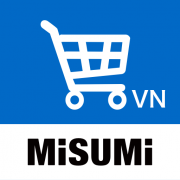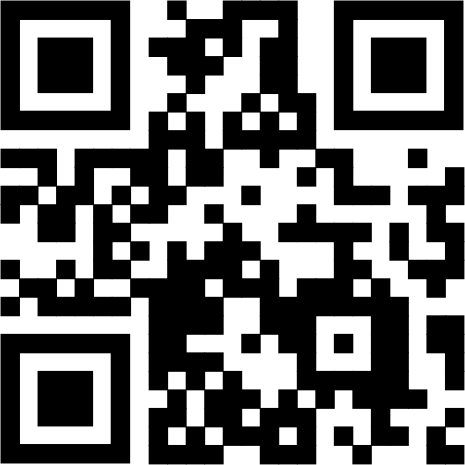(!) Since support from Microsoft will end on January 14th, 2020, Windows 7 will be excluded from the recommended environment from December 15th, 2019 on this site. Vì lý do Microsoft kết thúc hỗ trợ cho Windows 7 vào ngày 14/01/2020, Windows 7 sẽ là hệ điều hành không được khuyến khích sử dụng với trang web này từ ngày 15/12/2019.
Search by Category / Brand Tìm theo danh mục, nhãn hiệu
Search by Category Tìm theo danh mục
- [Thông báo] Cập nhật địa chỉ kho tập kết hàng hóa tại khu vực miền Nam của MISUMI Việt Nam. Xem chi tiết.
[Announcement] Update on warehouse address in the Southern region of MISUIMI Vietnam. See more. - [Cảnh Báo] Thủ Đoạn Lừa Đảo Từ Nhân Viên Giao Hàng – Yêu Cầu Trả Phí Ship. Xem chi tiết.
[Warning] Fraud Calling from Shipper - Asking to Pay Shipping Fee. See more.
Controllers(Type:Power Controller)
In factory automation, a controller is the central intelligence directing the orchestration of various processes. It acts as the brain of the system, overseeing tasks with precision. A Smart Relay within the controller facilitates swift decision-making for simple automation needs, while a Motion Controller coordinates intricate movements in machinery. Safety is paramount, and a Safety-Related Controller ensures that all operations comply with safety standards. A Cam Positioner manages the position of cams in machinery, optimizing performance. Power-related functions are handled by a Power Conditioner, ensuring stable electricity flow, while a Power Controller efficiently manages overall power distribution. Voltage Sensors monitor electrical levels, and Ionizer-Related controls manage static electricity for a safe environment. Demand-Related features adjust operations based on real-time needs. Additionally, RFID-Related controls enhance automation with advanced identification and tracking capabilities. Collectively, these controllers form the backbone of a sophisticated and efficient factory automation system, ensuring seamless operations and enhanced safety.
Brand |
|
|---|---|
| CAD |
|
| Days to Ship |
|
1 itemsMặt hàng
- Sort By
-
You can add up to 6 items per a category to the compare list.

From: 11,480,000 VND Days to Ship: Số ngày giao hàng: 7 Day(s) or more  7 Day(s) or more
7 Day(s) or more
| BrandNhãn hiệu |
|---|
| Product SeriesDòng sản phẩm |
| From |
| Days to ShipSố ngày giao hàng |
| Type |
You can add up to 6 items per a category to the compare list. | |
| BrandNhãn hiệu | OMRON |
| Product SeriesDòng sản phẩm | |
| From | 11,480,000 VND |
| Days to ShipSố ngày giao hàng | 7 Day(s) or more |
| Type | Power Controller |
Loading...Tải…
ConfigureTạo
Specification/DimensionsĐặc điểm kỹ thuật / Kích thướcĐặc điểm kỹ thuật / Kích thước
-
Type
- RFID-Related
- Smart Relay
- Safety Related
- Power Conditioner
- Power Controller
- Voltage Sensor
- Ionizer Related
- Demand Related
- Other
Related Categories to ControllersDanh mục liên quan đến Controllers
FAQ Electric Controllers
- Question: What is the role of a controller in industrial automation and what types are commonly used?
- Answer: A controller in industrial automation acts as the brain of machinery, overseeing and directing operations. Common types include Programmable Logic Controllers (PLCs) for discrete control and Distributed Control Systems (DCS) for process control. These controllers interpret data, make decisions, and execute commands to ensure the efficiency of automated processes.
- Question: How do industrial control systems enhance the efficiency and safety of machinery operations?
- Answer: Industrial control systems enhance efficiency by automating and optimizing processes, reducing manual intervention. They also improve safety by providing real-time monitoring, early fault detection, and the ability to implement emergency shutdowns, minimizing risks in industrial environments.
- Question: What are the primary components of an industrial control system and how do they interact?
- Answer: The primary components include sensors to gather data, controllers to process information, and actuators to execute commands. These components interact by creating a feedback loop: sensors send data to controllers, which make decisions and send commands to actuators, influencing the system's behavior.
- Question: Why is cyber security important in industrial controls, and what measures can be taken to enhance it?
- Answer: Cybersecurity is crucial to prevent unauthorized access and protect against cyber threats. Measures include network segmentation, regular software updates, strong access controls, and employee training to ensure a robust defense against potential cyber attacks.
- Question: How do PLCs function within industrial control systems, and what makes them essential?
- Answer: PLCs are specialized controllers that automate industrial processes. They receive input from sensors, process data using programmed logic, and send commands to actuators. Their reliability, programmability, and ability to withstand harsh industrial environments make them essential for precise and efficient control.
- Question: What advancements in remote access technology are impacting industrial control systems (ICS) today?
- Answer: Advancements in remote access technology, such as cloud-based systems and the Industrial Internet of Things (IIoT), enable real-time monitoring and control from anywhere. This enhances flexibility, efficiency, and predictive maintenance capabilities, transforming the landscape of industrial control systems.







How can we improve?
How can we improve?
While we are not able to respond directly to comments submitted in this form, the information will be reviewed for future improvement.
Customer Privacy Policy
Thank you for your cooperation.
While we are not able to respond directly to comments submitted in this form, the information will be reviewed for future improvement.
Please use the inquiry form.
Customer Privacy Policy